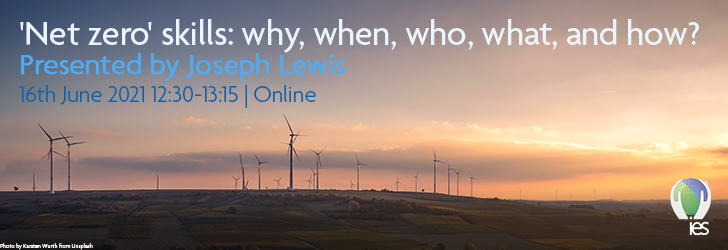Ahead of the COP26 climate conference at the end of 2021, there is increasing recognition of the importance of transitioning away from the systems which have embedded unsustainable forces in the global economy. President Biden has promised to make the most of his presidency to help support a transition, and the UK Government has set out its own ambition to take a leading role. However, before we can move forward with new economic systems, we need to know that the workforce is prepared for the transition.
This IES webinar will provide an introduction to the kinds of skills we need to support a transition to 'net zero' carbon emissions, placing the need for skills transition in the context of transformative change, just transition, and lifelong learning. Whether you are interested in supporting your community in developing 'net zero' skills, wondering how systems thinking can shape our approach to skills and learning, or are a professional looking for insights into how you can be part of a future 'net zero' economy, this webinar will have something for everyone.
This webinar is part of our activities in the fourth theme of our STAGES on the road to COP26: Green Society.
About our speaker:

Joseph Lewis is the Policy Officer for the Institution of Environmental Sciences. Joseph joined the IES in 2020 and is responsible for delivering policy for the IES and working to promote the use of the environmental sciences in decision making. He has a law degree from Durham University and an MSc in Public Policy from the University of Bristol, where he specialised in environmental policy. This webinar will be adapted from a presentation Joseph recently gave on 'net zero' skills priorities for transformative change, which was given as part of the work of the IES to work collaboratively with other organisations to ensure environmental considerations, scientific insights, and systems thinking are represented at every level of decision-making.


